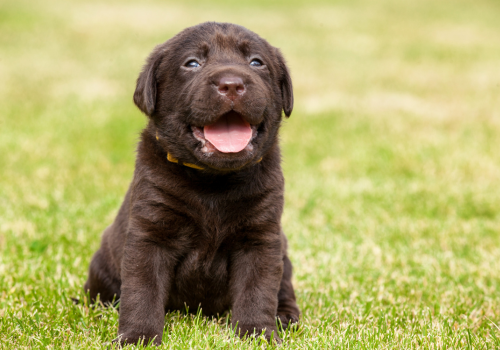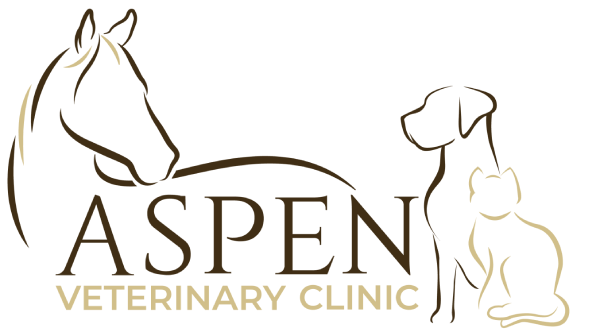
Spay & Neuter Services for Dogs
Ensuring a Healthy, Happy Life for Your Canine Companion
From keeping the pet population to a manageable number, to preventing diseases that can result from being intact, spaying or neutering your dog is an essential part of responsible pet ownership. If you’re not a dog breeder and are looking to get your pup spayed or neutered, you may have turned to the internet for answers on the procedure, recovery, and more. We’re glad you found us! To prevent the misinformation you can find online, we’ve gone ahead and answered FAQs on dog spaying and neutering and shared those facts with you below.
At Aspen Veterinary Clinic, we understand that you need reliable information to make the right decisions for your dog. While the information below is accurate, it’s always best to talk to your own veterinarian about any questions you may have, especially when it comes to something as critical as spaying or neutering. If your dog needs a veterinarian in or near Flagstaff, Arizona, we’d be thrilled to help with the procedure. Give us a call at (928) 526-2423 to schedule their first appointment.
How does dog spaying or neutering impact the health and wellbeing of my pet?
Spaying: A Key Procedure for Female Dogs
Procedure: Removal of the ovaries and uterus under general anesthesia, with proper pain management.
Benefits:
- Prevents unwanted pregnancies.
- Reduces the risk of certain cancers and infections, potentially leading to a longer, healthier life.
- Decreases behavioral issues related to the heat cycle.
Neutering: Vital for Male Dogs
Procedure: Removal of the testicles under general anesthesia, with proper pain management.
Benefits:
- Eliminates the ability to reproduce.
- Reduces the incidence of certain cancers.
- Minimizes behavioral issues like urine marking, excessive barking, and dominance-related tendencies.
How soon should I bring my pet in to get my dog spayed or neutered?
Typically, we will discuss the best timing for your particular dog when you come in for puppy vaccines. We vaccinate our puppies with a series of vaccines to help build their immune system, and during that period, we'll come up with the best timing for getting the spay or neuter procedure done. In general, we recommend doing so between six months and a year, although breed and size play a role in determining appropriate timing. Some smaller breed dogs may be spayed or neutered earlier; with some larger breed dogs, we might wait up to two years in some situations before we get them spayed or neutered.
What will my veterinarian need to know about my dog before spaying or neutering them?
Before we spay or neuter our dogs, we typically get pre-anesthetic blood work because we use general anesthesia, and these are invasive procedures. This blood work ensures that all their organs are functioning appropriately, and they can handle being put under anesthesia.
We also like to know how old the dog is and its general health which we can determine during a physical exam within 30 days prior to the spay or neuter. Your veterinarian will also want to know your dog’s activity level at home to help determine how the recovery will be.
How long will it take for my dog to recover from being spayed or neutered?
Full recovery from spays and neuters in dogs takes about 2-3 weeks. Male dogs tend to bounce back right after this outpatient procedure, but it’s just as important to keep the boys restricted after surgery as it is for the girls. For a spay or neuter, you will drop your dog off at the hospital in the morning, and they will go home with you later that evening. Sometimes they're a little bit sleepy that night after being under anesthesia, but they tend to have pretty good energy the next day and are feeling well again. Female spay surgery is more invasive than a male neuter surgery and will take a little longer to recover. Expect them to be sleepy for a few days, and be careful to limit activity, especially jumping during the recovery period. We send all patients home with pain medication to help them be comfortable during the initial days post surgery.
We ask that you minimize certain activities and overexertion because tissue healing occurs during those first two to three weeks after the procedure. We'll typically recommend exercise restrictions for approximately 14 days, so keep them on a short leash to go on walks to eliminate. The biggest job for you as a pet owner is to restrict your dog’s activity and keep an eye on that surgical incision to make sure that it doesn't look red, irritated, or infected. In general, recovery following a spay surgery or a neuter surgery is relatively quick.
What care should I be prepared to provide at home while my dog is recovering from their surgery?
Activity restriction is essential to make sure that the incision heals properly. We ask that you carefully check the incision site at least daily post surgery and look for any signs of irritation or problems with the incision. You’ll want to ensure that the animal isn't licking or rubbing at the incision site, as that can cause infection. The ASPCA offers a comprehensive guide on helping dogs recover from surgery.
You'll want to restrict them to an area where they can't roam through the whole house, jump on furniture or access a dog door. Choose a small room like a bathroom or laundry room, or maybe use a series of baby gates so that you've got a small, confined area that's a safe place for them to heal and recover.
Cost-Effective and Responsible Pet Ownership
- Financial Aspect: The cost of spaying or neutering is significantly less than the cost of raising puppies for a year.
- Population Control: Helps in preventing dog overpopulation.
Prioritizing Safety and Well-being
- Pre-Surgical Care: Includes a comprehensive exam and basic pre-anesthetic bloodwork to ensure the safety of your pet for the surgery.
Our Commitment: We aim to practice the highest standard of veterinary medicine, including during all routine surgeries. Every patient is given an IV catheter with fluids during the procedure. We use the safest anesthetic medication available and include anti-nausea medication for every spay surgery. Your pet is connected to advanced monitoring technology throughout the procedure, that is continuously monitored by a technician with advanced training in anesthesia monitoring. We will always prioritize your pet's health and safety.
Schedule Your Pet’s Surgery with Confidence
At Aspen Veterinary Clinic, we are dedicated to providing compassionate care and the highest quality medical services. Trust us to care for your pet's surgical needs with professionalism and empathy.
If you have questions and you'd like to reach out to us, you can call us directly at (928) 526-2423, or you can email us at [email protected]. Don't forget to follow us on social media Facebook, Instagram.
